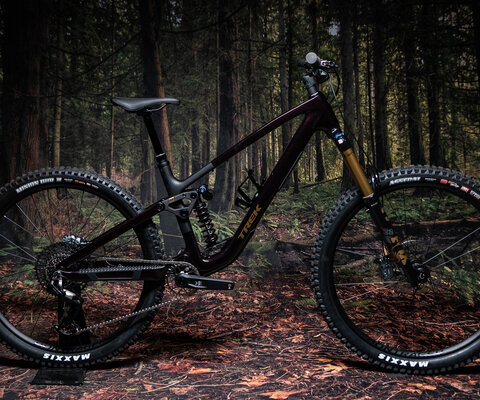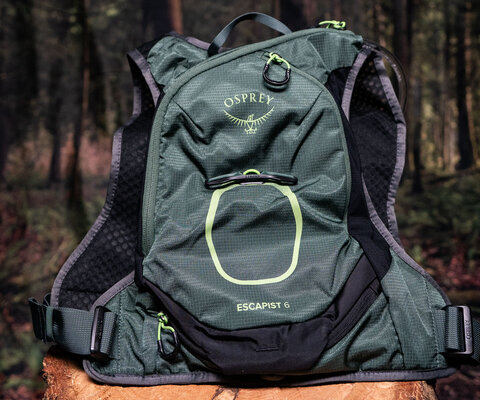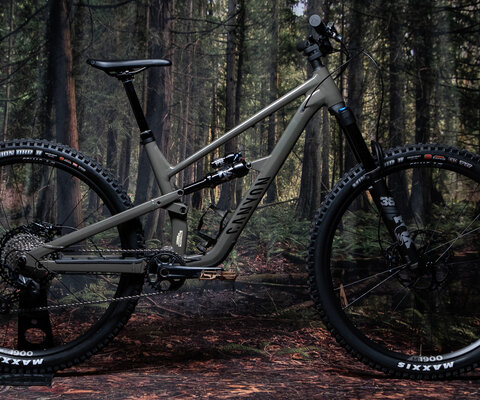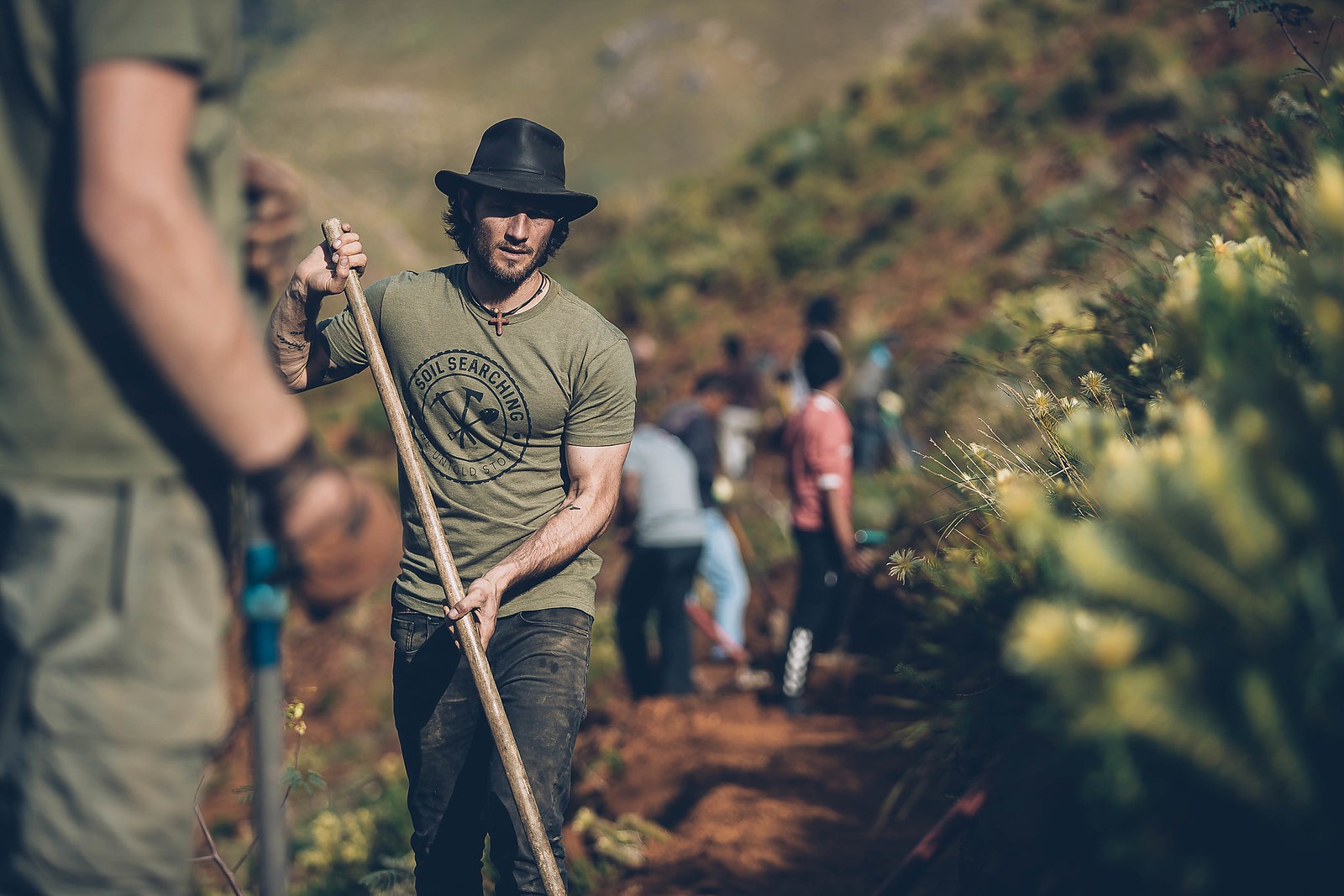
The Lorax Fanie Kok and a Voice for Trail Builders
Words by Jann Eberharter
Fanie Kok hasn’t had a physical address in three years.
Even if someone did try to ship him something, he’d probably be in their neighborhood before it got to his hometown in South Africa.
As the head of Specialized Bike’s Soil Searching program, Fanie’s job takes him around the world, from British Columbia to Singapore to Ireland to Utah, and his title of Global Trail Advocate could not be more spot on. Every stamp inside his unrecognizably tattered passport represents not only a place, but also a community of mountain bikers he’s come to consider his friends.
Fanie’s path wasn’t necessarily an intentional one. As a young cross-country racer with a short-lived downhill calling, he spent his early years aiming for podiums. “I just wanted to ride my bike,” he says, “but that concept didn’t exist in South Africa. You had to race.”
Instead, Fanie’s road to professional advocacy began while driving demo gear for Specialized South Africa. When the company approached him about a market research position they were creating to better connect with riders and communities, the initial pitch seemed a dream job: travel the globe, ride bikes and talk to people. Fanie, however, saw deeper opportunities.
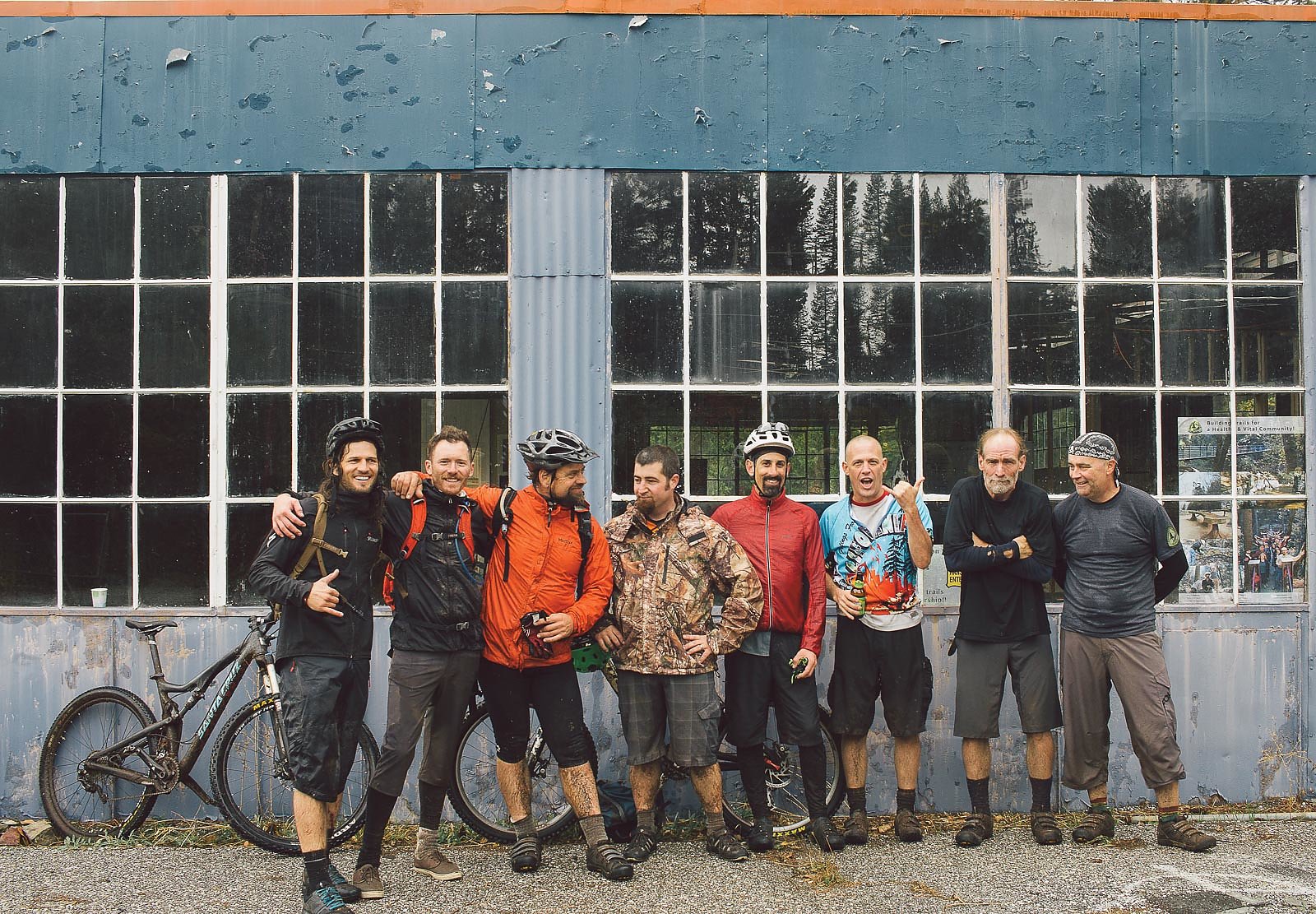
“What I suggested to the team was we revolve the whole project around trail builders and trail advocacy because that’s the best way to connect to the heart and soul of a community,” Fanie says. “I actually don’t even want to call it a project. To me, it’s a movement.”
With that, Soil Searching was born. After successfully supporting two builders in South Africa, supplying product and even funding trails, Fanie wanted to bring the movement to the United States. However, during one of his first visits he got a heavy dose of the politics and legislation that have hindered much of the potential trail development in the States.
Marin County, CA is often regarded as the birthplace of mountain biking, where a group of pioneers started bombing their fully rigid, fat-tired bikes down the dirt roads outside of town. But like many other places in the United States, the history of Marin mountain biking is rife with conflict, and today the area has only a few legal bike trails. Fanie learned the full backstory on this decades-long land-access fight when he met Vernon Huffman, president of the advocacy group Access4Bikes, in the town of Fairfax. It was a surprise.
“I had no idea the extent these people had to go through for us to ride bikes, and [for the industry to] ultimately sell bikes,” Fanie says. “There and then I realized this project was going to evolve from a market research project into a pure trail-driven project to recognize and celebrate trail builders.”
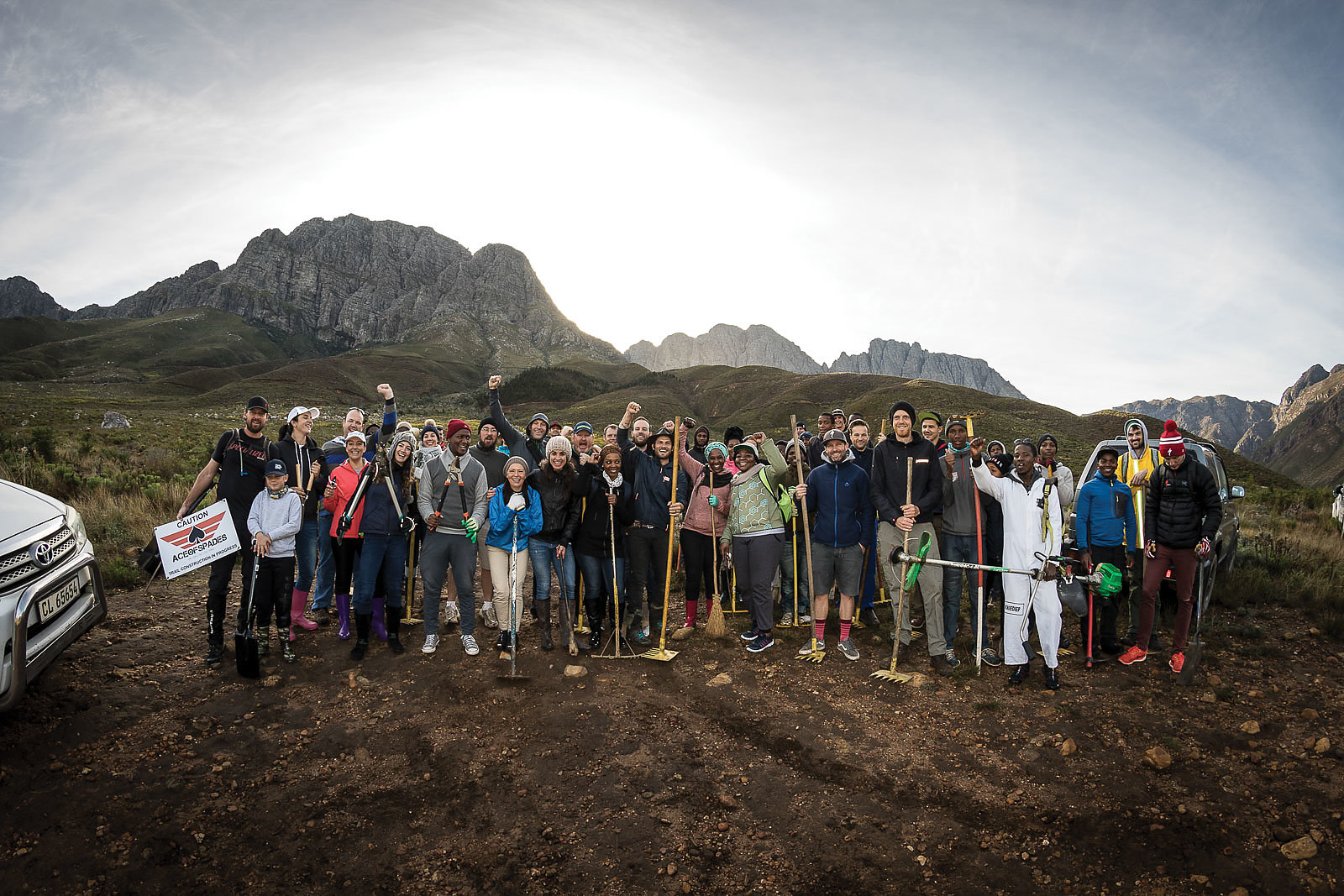
Many trail builders would rather be working in the dirt than filling out paperwork, and thus feel less inclined to go through the steps ensuring the fruits of their labor are fully legal. But to guarantee mountain bikers continue gaining land access (including to the works of art these builders are creating), they need to have a voice. This obligation belongs not just to individuals, but to everyone involved in the industry.
“I feel like Specialized has a unique opportunity, but also a responsibility to set an example with how we approach this and how we address the whole trail-building thing,” Fanie says. “People really believe in this. I hope for the day where every mountain bike brand, at their annual marketing meeting, says ‘50-percent of our budget is going to trail building.’”
Much like how companies have sponsored athletes with big salaries, Fanie imagines bike brands having sponsored trail builders as well, who could provide a direct connection to local communities and give back by creating new trails, which would, in turn, secure a future for the sport. A good example of this is in Australia, where professional trail building is a thriving occupation. As companies compete for projects, the pressure to make sure trails don’t contribute to erosion, needless maintenance and can withstand high traffic creates a better and more cost-effective product in the end. It also creates a more enjoyable place to ride a bike.
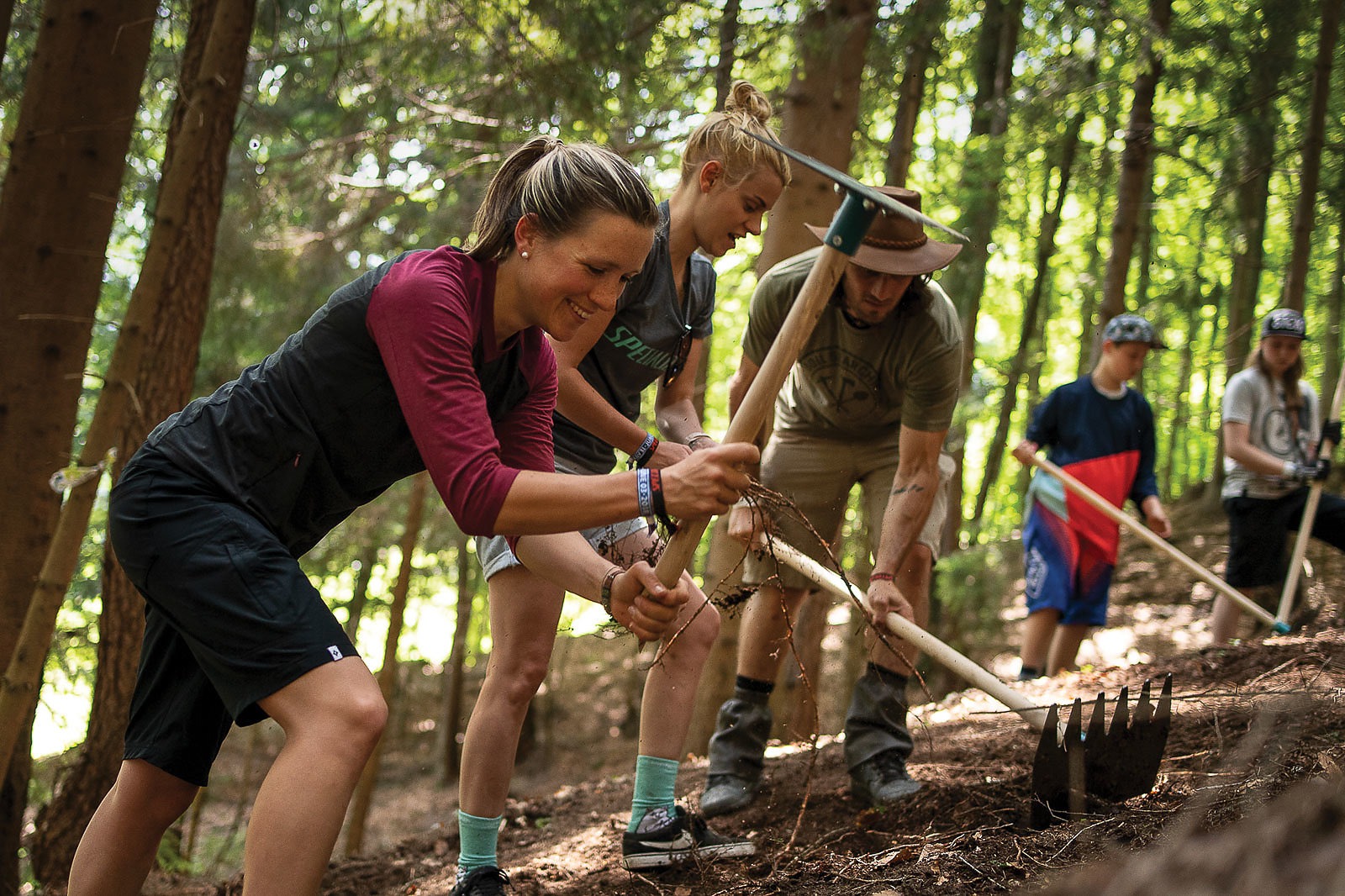
Fanie sees potential for this across the globe, like when he met Ben and Amy Fish and their son Max in South Lake Tahoe, CA. Both Ben and Amy are on the board of the Tahoe Area Mountain Bike Association, a commitment they made on top of their full-time jobs, and are dedicated to creating a world-class mountain bike destination. Seven-year-old Max is at nearly every trail day and growing up surrounded by such a devout passion has made a significant impression.
“I asked Max, ‘Hey, what do you want to be when you grow up?’” Fanie says. “His answer was, ‘I want to be a trail builder.’”
Then and there, Fanie knew the future could be bright. True, a lot needs to happen to create more full-time trail-building jobs. But people are already living this dream all over the world, and with standards like those of the Fish family, forward movement is inevitable— not only for trails, but for advocacy as well. Fanie’s Soil Searching movement is exactly the kind of thing that can help the profession become more attainable for future generations.
“I kind of feel like I’m the Lorax,” Fanie says. It’s a reference to Dr. Seuss’ furry yellow creature who speaks for the trees. Fanie just speaks for the trail builders.
